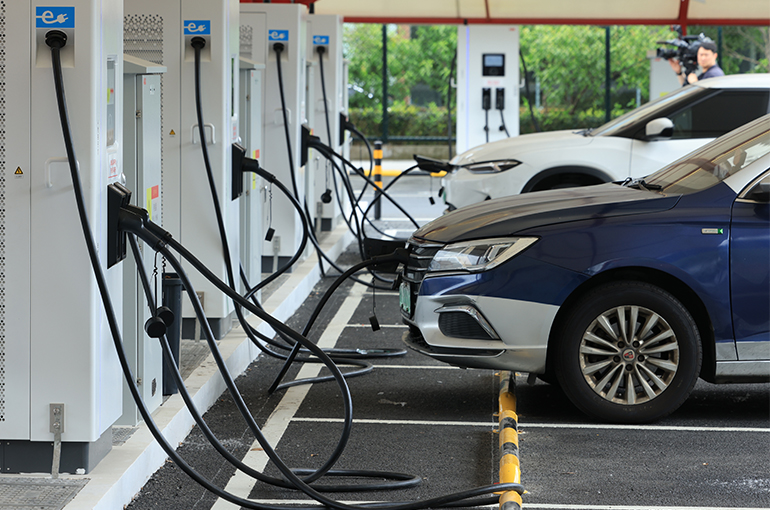 Chinese EV Sector’s Growth Is Not Due to Subsidies, Trade Body Says
Chinese EV Sector’s Growth Is Not Due to Subsidies, Trade Body Says(Yicai) Aug. 30 -- The development of China’s electric vehicle industry is not based on subsidies, a spokesperson of a national agency dedicated to promoting foreign trade, investment,and economic cooperation said, referring to the high countervailing duties that the European Commission has recently levied on electric cars imported from China.
The sector’s growth is a result of China’s competitive edges in global EV supply chains, manufacturers’ constant innovation, the size of the industry as well as fierce competition, Wang Linjie, a spokesperson for the China Council for the Promotion of International Trade, said at a press briefing today.
At the beginning of July, the European Commission imposed provisional additional tariffs of between 17.4 percent and 37.6 percent on imported Chinese EVs after an anti-subsidy investigation launched in October last year.
As part of the probe, Chinese electric vehicle manufacturers submitted a great amount of evidence as well as documents to prove that the growth of China’s EV sector is not based on subsidies, Wang said.
There is insufficient evidence to show that China’s new energy vehicle sales have caused substantial damage to the EU market, Wang said. The commission identified ‘the threat of damages’ based on speculation and possibilities. It initiated the anti-subsidy probe, ignoring the facts and investigation rules and refused to rectify a mistaken belief, which is typical of trade protectionism and unacceptable in the industry.
The Canadian government has also recently said it will hike tariffs on products imported from China, such as EVs. This is a restrictive unilateral measure as well as a form of trade protectionism that ignores the facts of industrial development and the rules of the World Trade Organization, Wang said.
Trade protectionism destroys cooperation among global industrial and supply chains, including the electric vehicle sector, Wang said. This not only hurts consumer interests, but also does not spur the growth of the related sectors in the countries involved.
The CCPIT and the China Chamber of International Commerce again call on all related parties to respect the facts and regulations and to not adopt unfair means to curb economic and trade tie-ups between China and the EU as well as between China and Canada, Wang said. They should deal with trade-related disputes through proactive talks, negotiations and industrial partnerships.
Editor: Kim Taylor